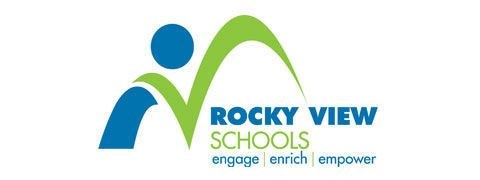One of the biggest concerns in schools today is students’ and teachers’ mental wellness but teachers are not always certain how to address the issue according to Chris Pawluk, lead psychologist with Rocky View Schools (RVS).
That’s why the district is arming their teachers with resources and education on mental wellness in response to the increasingly high province-wide mental health concerns in adolescents.
“There’s a lot of different moving parts as the whole province responds to what we see as an increase in those mental health concerns,” said Pawluk.
“If you went into a school today and said, ‘what is the biggest thing that you worry about?’ they would say student mental health and teacher mental health. (Teachers are) very worried about both of those things and (are) wanting to support the kids in lots of different ways and that they really don’t know how to do that.”
There are a number of resources available for teachers, especially online sites including a newly approved program from University of British Columbia called Bringing Mental Health to Schools: a curriculum resource for grades 8 to 10.
Pawluk said some of the key understandings teachers should have is ways of perceiving mental wellness and illness.
Introducing the distinction between mental health and mental illness in the same way that people talk about physical health and physical illness is particularly important.
“We can all be reasonably mentally healthy, but we might also have periods of mental illness just the same as with physical illness,” he explained.
For example, he said though one might be overall healthy, eating well and getting enough rest, in the same way you may also be reasonably mentally healthy with positive coping methods and self-esteem, one might still go through bouts of depression or anxiety during a major life change.
Alternatively, though one might be overall physically healthy they could still suffer from a chronic disease.
“I might have anxiety ... but that’s the mental illness, I can still be mentally healthy in other ways. Just like I might have diabetes but I’m reasonably good at managing it and I do all these other things to care for my health and I’m otherwise pretty healthy,” Pawluk explained.
These type of conversations have been discussed among teachers in middle schools and high schools over the last four years, however RVS plans to roll it out again in January 2018 during the exam break for all the high schools.
This will not only refresh memories, it will also address the staff turnover or those that missed previous information sessions.
The University of Calgary has also changed its teaching training program to include a compulsory course on staff and student wellness.
“Every trained teacher that comes into the school to do their practicum placement has to do a wellness project with the kids or the staff.”
Teachers are also trained in cognitive behavioural therapy.
“We do a training program called the Friends For Life program. It teaches kids about feelings and behaviours and how those interact,” said Pawluk adding that teachers often take huge interest in this training.
Pawluk said the only way teachers can teach and demonstrate what a healthy adult looks like is to learn to be one themselves.
“There’s this idea you can only give to the students what you’ve got,” Pawluk said. “It’s stress management, coping, healthy eating, and getting lots of sleep. Having a good exercise routine. If teachers have those things and can model those things to the kids as well then that’s very helpful.”




